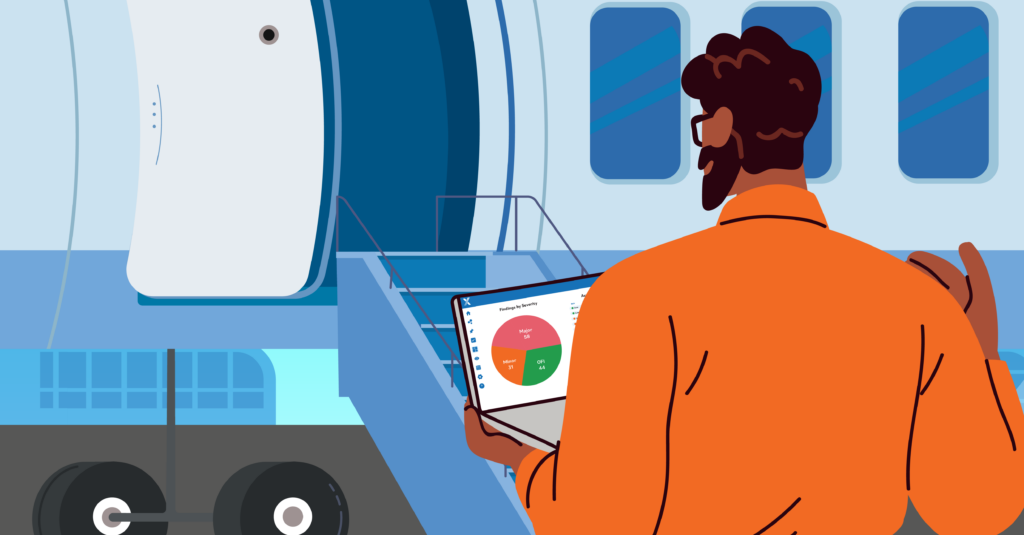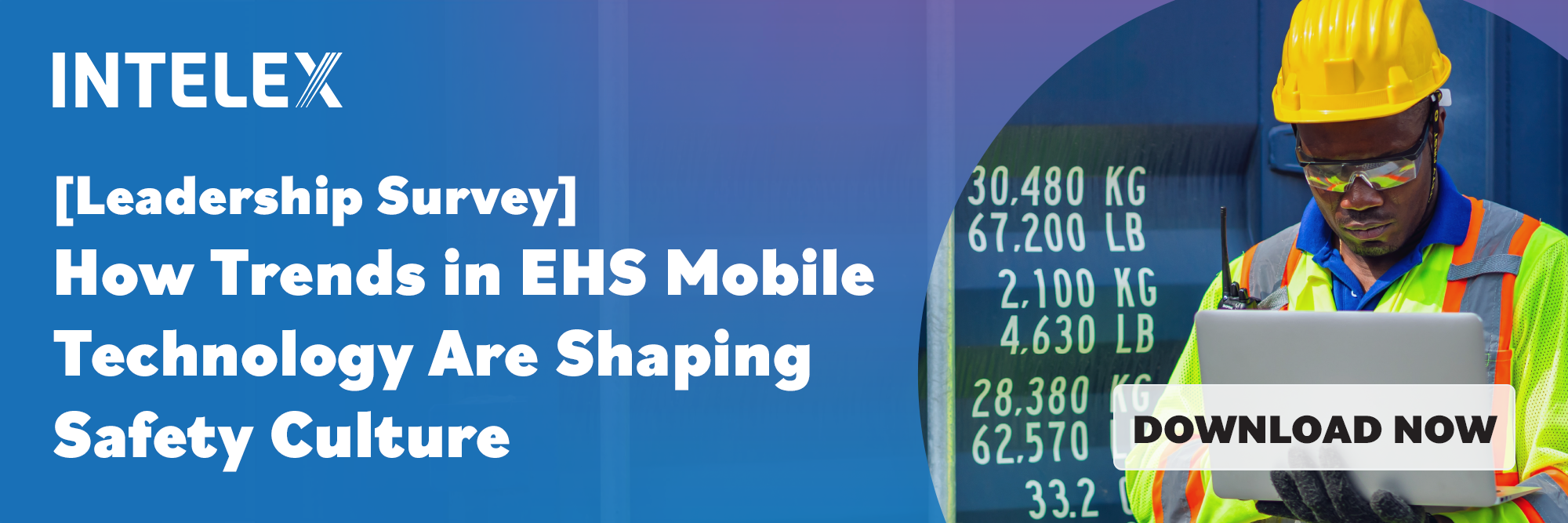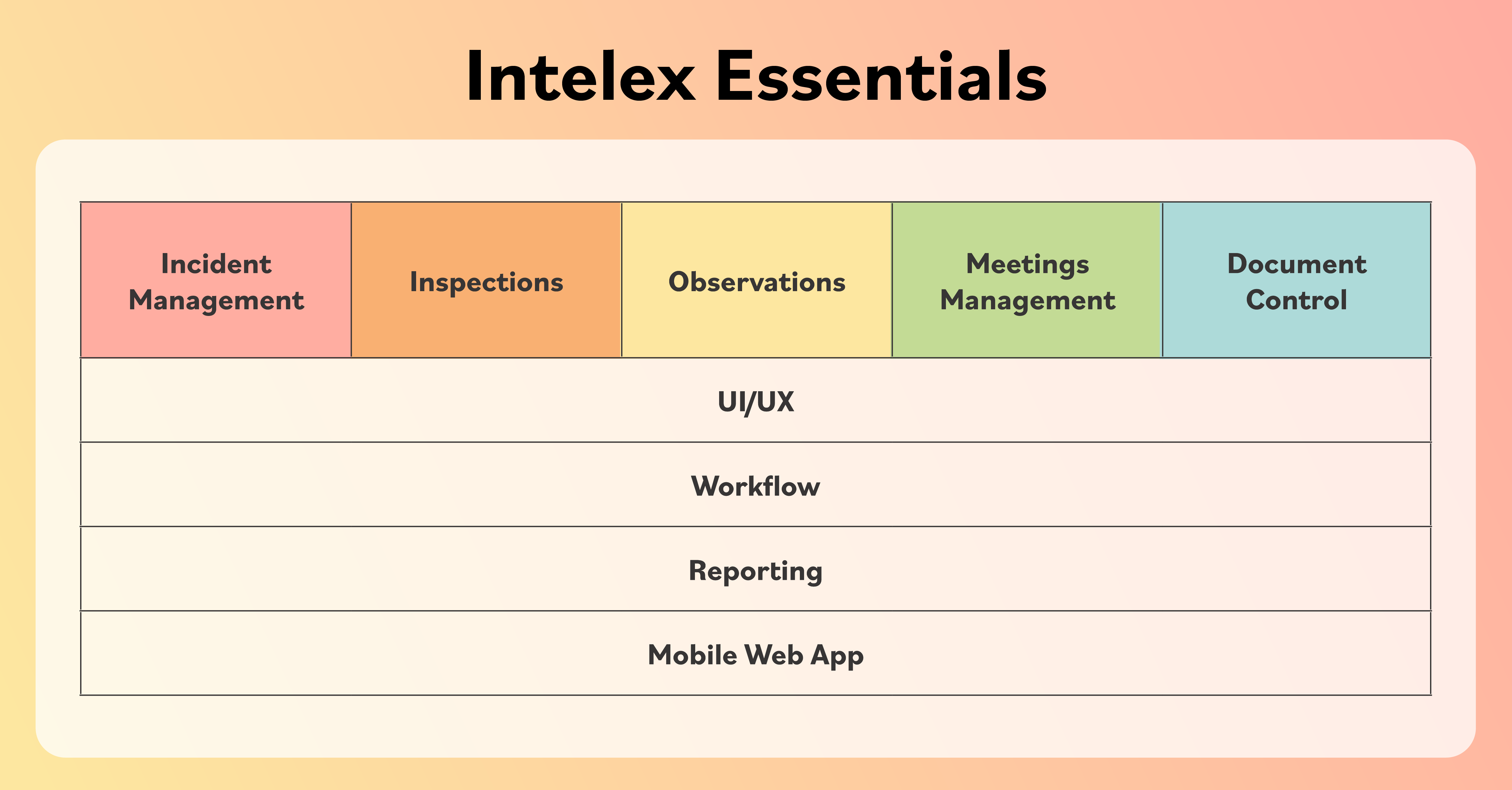A Successful EHS Mobile Rollout by Wizz Air
August 10, 2022

The adoption of EHS mobile technology allows Wizz Air to immediately report on and record flight information and incidents, even when employees are off-line. Wizz Air, with its 6,400+ employees, is a Central-Eastern European airline with its head office in Budapest, Hungary. The airline, which carried 21.7 million customers in 2021, serves many cities across Europe, as well as some destinations in North Africa and the Middle East.
According to Akos Steigervald, System Administrator and FDM manager at Wizz Air, the rollout of mobile was part of the company’s Phase One go-live for Intelex in January 2021, along with safety reporting and platform. Phase Two in April 2021 included Intelex Audit Management software and Phase Three in June 2021 included Change Management software. The system has 6,400+ users: 99 percent have standard access while 1 percent have “full” access and there are 10+ system administrators.

Wizz Air uses mobile primarily for four things: reporting, inventory checklists, access to the platform and data and bulletin updates. Steigervald said Wizz Air has found the Mobile app beneficial in a number of ways:
1. Ease of Reporting
The adoption of mobile technology allows Wizz Air to be able to immediately report on and record flight information and incidents, even when employees are offline. “Employees don’t have to wait until the flight is finished to report anything,” he noted. This results in a better reporting rate, more detailed reports and more timely reports.
Approximately 70% of mobile usage is related to “offline” reporting. This allows for immediate report submissions even while the plane is in the air or on the ramp without internet access or access to a notebook or laptop.
The types of reports can vary quite considerably, from fatigue reports and alertness surveys, to flight operations reports, a go-around survey, health and safety reports and more.
“We have a better reporting rate, because our staff are more engaged with the Intelex system than the previous tool we had in place. We get more detailed reports and more punctual reports because they don’t have to wait until their shift finishes,” said Steigervald.
“This has resulted in an improved reporting culture, not only in the number of reports but in the quality.”
2. Inventory Checklists
As you can imagine, airline crews – flight, maintenance, ground, etc. – have a lot of checklists. Being able to use a mobile device and application means onsite audits via checklists are easier to perform and require less paperwork.
Auditors have no need to carry notebooks around with them. It also means that there is less manual processing of data and information from paper checklists which no longer must be entered into the system when the flight lands.
Reports and checklists that can be generated on the system include those related to safety and health, flight operations reports and audits, fatigue reports and alertness surveys, ground operations reports, maintenance checklists and more.
3. Platform Is Easy to Use
The mobile home screen gives employees access to the documents, templates and notifications that are relevant to their functions. They are able to reply to messages sent to their message centre and can also attach files.
4. Instant Notifications
The Intelex EHS Mobile app currently sends notifications and bulletins straight to the mobiles of a targeted group of employees, said Steigervald, “so there is no need for users to log into email to see these messages.”
Future plans include expanding the use of bulletins beyond that initial target group to a much wider group of employees.
The Development Process
Wizz Air has customized its Intelex solution to provide employees with the best user experience possible while collecting the important data needed to keep employees and customers safe and operations on schedule.
Step One of the process starts with an idea, often from an employee using the system, which results in a business request and solution proposal. Step Two – the development phase – includes development and testing on UAT by a dedicated group of people. Step Three is the promotion of the change or update to employees, which includes communication about the changes and the go-live notification.
This development process has resulted in a list of several future initiatives, including:
- A standardized information guidance for safety reporting. “The reporting process can be quite complicated,” said Steigervald, “so it is hoped that the guidance will streamline some of that reporting process.”
- A “My Reports” inventory on the Mobile applications that includes drafts and all submitted reports.
- More bulletins delivered to a wider group of employees to improve safety goals and user engagement.
- An external user login so that Wizz Air partners, such as gate agents and baggage handlers, access the mobile app and receive notifications.
- Automatic user uploads at 6-hour intervals.
- More survey platforms merged with the Intelex platform.
Conclusion
Wizz Air’s successful mobile rollout, highlighted in the Leaders2Leaders The Network session, demonstrates the impact of adopting mobile technology in aviation operations. By leveraging the Intelex platform, Wizz Air has significantly enhanced its reporting efficiency, inventory management and communication processes, even in offline environments. The ability to report incidents immediately and perform audits via mobile devices has streamlined operations, reduced manual data processing and improved the quality and timeliness of reports.
The ongoing customization and development of the Intelex solution reflect Wizz Air’s commitment to continuous improvement and employee engagement. Future initiatives, such as standardized safety reporting guidance and expanded bulletin distribution, promise to further optimize the user experience and operational safety.
Wizz Air’s approach serves as a valuable model for other organizations looking to harness EHS mobile technology to enhance efficiency and safety. By fostering a culture of proactive reporting and leveraging real-time data, Wizz Air is well-positioned to maintain high standards of safety and service, ensuring a seamless experience for its employees and customers alike.







